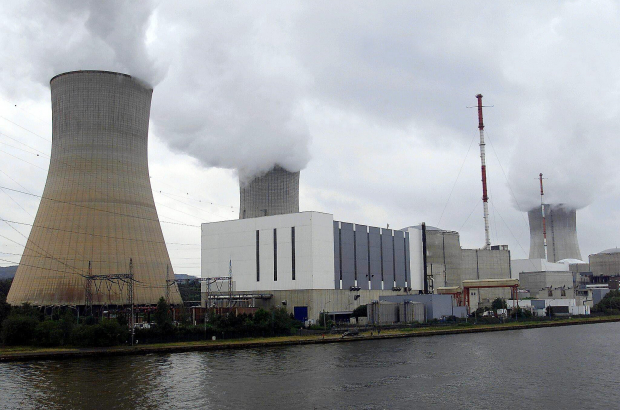- Daily & Weekly newsletters
- Buy & download The Bulletin
- Comment on our articles
More bumps along the road to Belgium’s nuclear phase-out
Belgium committed to phasing out its seven nuclear power plants by 2025, but whether that goal is achieved remains to be seen ahead of a meeting on Friday between the relevant ministers.
A report from federal energy minister Tinne Van der Straeten will be reviewed then, ahead of its submission next Tuesday, and aims to address issues such as the security of the country’s power supply and the impact that a full phase-out would have on energy prices.
“If this report shows that there is an unexpected problem with security of supply, the government will take appropriate measures such as adjusting the legal schedule for up to 2 gigawatts of capacity,” reads the government agreement.
But analysis of the report, which was leaked to newspapers, criticises its verdict to go through with the phase-out for its brevity and failure to address a variety of issues, including the fact that the gas-powered station in Vilvoorde (which is critical for the phase-out of nuclear) has not yet received a permit.
Political response to the leaked report has been split, with some calling on the country to extend the deadline or the terms for phasing out the seven power plants, and others saying there is no evidence that doing so would have any effect on energy costs.
MR party chairman Georges-Louis Bouchez proposed to scale back the nuclear phase-out, warning against “energy poverty” and rising bills, but energy supplier Engie/Electrabel called the proposals from Bouchez “irrelevant” as it is too late to consider any extension.
“Even if we were to go into it, it turns out that several elements have not been taken into account,” said Engie/Electrabel spokeswoman Hellen Smeets. “For example, transferring the concession does not mean that the operating license can also be transferred.”
Belgium first committed to phasing out nuclear power in 2003, then reaffirmed the commitment by enshrining it into law in 2015.
The leaked report that will be discussed on Friday follows the results of the auctions carried out under the Capacity Remuneration Mechanism (CRM), which aims to guarantee Belgium sufficient energy capacity.
The ministers could decide to extend the two newest reactors, Doel 4 and Tihange 3, if necessary, a scenario that Bouchez and others say they favour because it would allow Belgium to limit its greenhouse gas emissions and partly protect it from a currently very tight gas market.
The environmentalists have so far been cautious, sticking to the government agreement and remaining optimistic about leaving nuclear power, and the Socialist party supports a full closure.
But the N-VA staunchly defends nuclear power. They are in opposition at the federal level but hold the majority in Flanders, where Flemish environment minister Zuhal Demir (N-VA) refused to grant a permit to the critical Vilvoorde gas plant on the grounds that it would cause pollution.
For its part, Engie has repeatedly said that it has turned the page on nuclear power in Belgium, and the time has passed to obtain the necessary permits in time and to carry out the various practical operations required to stop a full phase-out.
Pumping the brakes on a nuclear phase-out could also lead to problems with Europe, since the approval of the CRM by the European Commission was conditional on the nuclear phase-out.
Prime minister Alexander De Croo has weighed in to say that the question of nuclear energy in Belgium must be the subject of “a slightly broader discussion than just the exit or non-exit of nuclear power” but emphasised that he wants sustainable energy to be at the centre of the debate.
Alternatives to nuclear energy will continue to be studied as part of the ongoing nuclear phase-out, but it remains to be seen whether such alternatives can sufficiently compensate for the loss of Belgium’s seven nuclear reactors.














